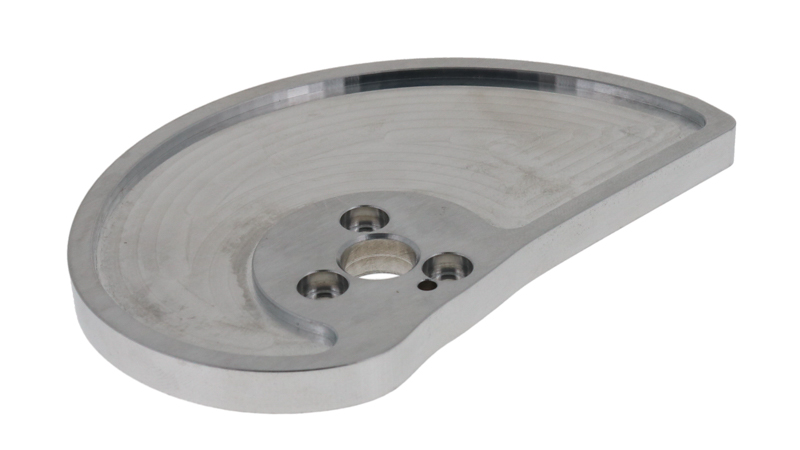CNC Parts For Medical Devices and Equipment
Critical Computer Numerical Control (CNC)-machined parts play a vital role in the production of medical devices and equipment. These precision-machined components are crucial for ensuring the safe and effective operation of medical devices and equipment, as well as for maintaining their longevity. The high level of precision, accuracy, and consistency required for medical devices and equipment make CNC machining an ideal manufacturing method for these critical parts.
Precision Parts for Critical Medical Functions
Medical devices and equipment, such as surgical instruments, implants, and diagnostic equipment, are designed to perform lifesaving or life-improving functions. These devices must be able to operate with a high degree of accuracy and precision, and any failure or malfunction can have serious consequences. CNC-machined parts are critical in ensuring the proper functioning and reliability of medical devices and equipment.
For example, surgical instruments must be made with precise and consistent dimensions to ensure they work properly and safely. Inaccuracies in the shape and size of these instruments can result in improper or ineffective procedures. CNC machining allows for the production of parts with extremely tight tolerances and consistent dimensions, ensuring that the instruments will perform consistently and reliably.

The high level of precision required for medical devices and equipment also extends to their internal components. In diagnostic equipment for example, precision machined components are critical for ensuring accurate and reliable readings. Inaccuracies in these components can result in incorrect diagnoses or treatment plans, which can have serious consequences for patients.
CNC machining provides a level of control and precision that is difficult to achieve with other manufacturing methods. The ability to program and control the machining process to a high degree of accuracy and consistency allows for the production of parts that meet the exacting requirements of medical devices and equipment. This precision is further enhanced by the ability to inspect, and measure machined parts with high accuracy using CNC machines, allowing for the detection of any inaccuracies and the correction of any issues before they can cause problems in medical devices and equipment.
Longevity Of Medical Devices and Equipment
The consistent and accurate production of critical CNC-machined parts is also important for ensuring the longevity of medical devices and equipment. The consistent dimensional accuracy and tight tolerances of CNC-machined parts reduce the risk of failure, making the devices and equipment more reliable and long-lasting. This is particularly important for medical devices and equipment, which are often required to perform critical functions for extended periods of time.
There are several challenges that manufacturers face when producing CNC-machined parts for use in medical equipment.
Some Challenges Include:
- Tolerance and Accuracy: Medical equipment requires high levels of precision and accuracy in the machined parts. CNC machines must be able to produce parts with tight tolerances, which can be challenging to achieve, especially when dealing with complex shapes and geometries.
- Materials Selection: Medical equipment must be made from materials that are biocompatible, corrosion-resistant, and non-toxic. The selection of materials must be carefully considered to ensure the safety and reliability of the medical equipment.
- Surface Finish: The surface finish of the machined parts must be smooth and free of defects to prevent contamination and ensure the safety of patients. This requires the use of specialized tools and techniques during the machining process.
- Cost: Medical equipment is a high-cost item, and the cost of producing the machined parts must be controlled to keep the overall cost of the equipment within reasonable limits. This requires the use of cost-effective machining processes and the optimization of production processes.
- Lead Time: Medical equipment is typically produced in small quantities, and the lead time for production must be minimized to meet the demands of the market. This requires the use of efficient production processes and the optimization of the supply chain.
- Regulatory Compliance: Medical equipment must comply with a range of regulations, including FDA and ISO, to ensure its safety and effectiveness. The production of machined parts must comply with these regulations, which can be a complex and time-consuming process.
These challenges highlight the need for manufacturers like Metal Craft Machining to have a robust production process and the use of advanced technology and techniques to ensure the production of high-quality, reliable CNC-machined parts for use in medical equipment.
